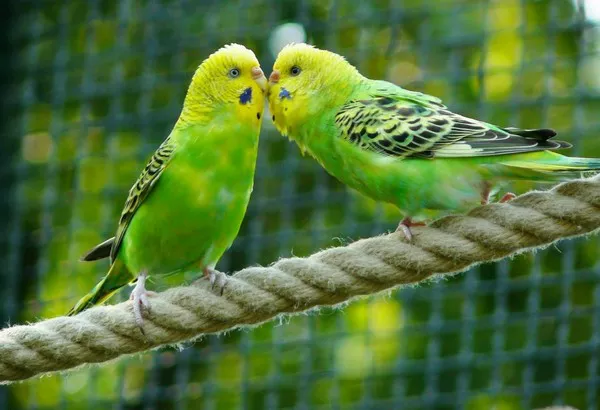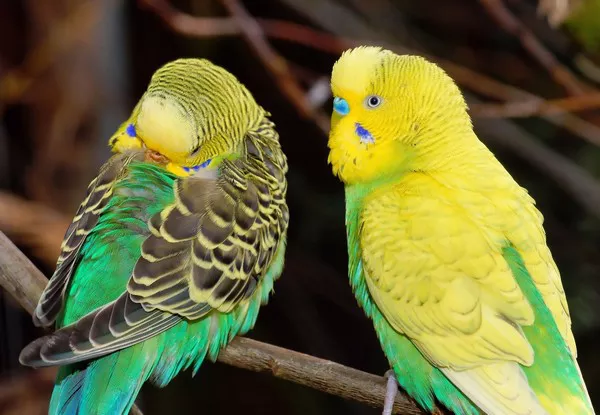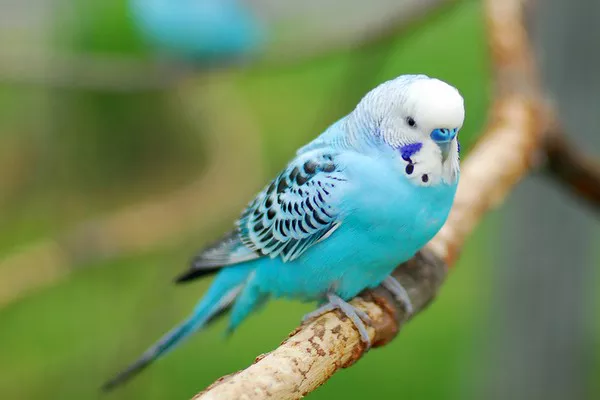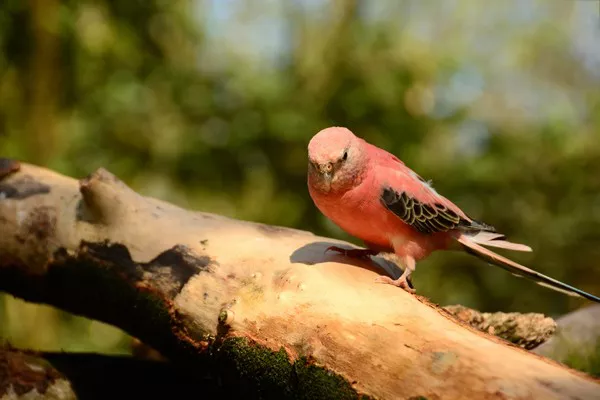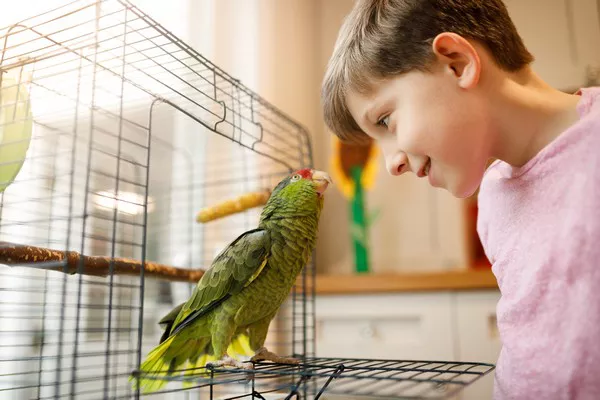Sun Conures (Aratinga solstitialis) are vibrant, playful parrots known for their striking yellow and orange feathers. Native to the northeastern parts of South America, these birds are a popular choice as pets due to their affectionate nature and intelligence. As with all pet birds, it is important for owners to understand their dietary needs and make sure they are offering them a balanced, healthy diet. One common question many Sun Conure owners have is whether they can safely feed their birds watermelon. In this article, we will explore the nutritional needs of Sun Conures, the benefits and potential risks of feeding watermelon, and how to safely offer this delicious fruit to your feathered friend.
Understanding the Sun Conure’s Diet
Sun Conures, like most parrots, are omnivores. This means that they eat a variety of foods, including fruits, vegetables, seeds, and nuts. In the wild, they primarily forage for food in tropical and subtropical regions, consuming a range of plant matter, including fruits, flowers, and seeds. When it comes to pet care, a balanced diet is essential to ensure your Sun Conure remains healthy, active, and happy.
A well-rounded diet for a Sun Conure typically includes:
High-quality pellets: These are specially formulated to provide all the essential nutrients your bird needs, including vitamins, minerals, and amino acids.
Fresh fruits and vegetables: A variety of fruits and vegetables should make up a significant portion of your bird’s diet. These provide essential vitamins, fiber, and antioxidants.
Seeds and nuts: While these can be high in fat, they should be offered in moderation as part of a balanced diet.
Occasional treats: Safe human foods, like certain fruits and vegetables, can be offered as treats in small quantities.
Watermelon: A Refreshing Treat for Birds?
Watermelon is a refreshing, hydrating fruit that is packed with vitamins and minerals, making it a popular snack among humans, especially during the summer months. But is watermelon safe for your Sun Conure?
The short answer is: Yes, Sun Conures can eat watermelon. However, like all foods, it should be offered in moderation and prepared correctly. Below, we will take a closer look at why watermelon can be a good choice for your pet bird and how to safely serve it.
Nutritional Benefits of Watermelon for Sun Conures
Watermelon is rich in water, which makes it an excellent hydrating treat. Given that Sun Conures, like all parrots, need to stay properly hydrated, watermelon can be a great way to supplement their water intake, especially in hot weather. Here are some of the key nutritional benefits of watermelon for Sun Conures:
High Water Content: Watermelon is made up of about 90% water, which makes it incredibly hydrating. Proper hydration is essential for your bird’s overall health, especially for their digestion, circulation, and feather condition. Offering watermelon on a warm day can help keep your Sun Conure well-hydrated.
Vitamins A and C: Watermelon is a good source of vitamin A and vitamin C, two vital nutrients that contribute to a Sun Conure’s overall well-being. Vitamin A is important for healthy vision, immune function, and skin, while vitamin C plays a key role in collagen production, immune health, and reducing oxidative stress. Both of these vitamins help keep your bird’s body functioning optimally.
Low in Fat and Calories: Watermelon is naturally low in calories and fat, making it a great option for a healthy treat. Sun Conures, like other parrots, can easily become overweight if they are given too many fatty treats or seeds. Watermelon is a sweet alternative that satisfies your bird’s craving for something sweet without contributing to excess weight gain.
Antioxidants: Watermelon contains antioxidants such as lycopene, which can help neutralize harmful free radicals in your bird’s body. Antioxidants are important for fighting inflammation and supporting a healthy immune system, which is particularly important for pet birds that are living in close contact with humans, where exposure to pathogens can be high.
Fiber Content: Watermelon has a moderate amount of fiber, which helps to support digestive health in birds. The fiber in watermelon can promote healthy gut function, prevent constipation, and help keep your Sun Conure’s digestive system running smoothly.
Potential Risks of Feeding Watermelon to Sun Conures
While watermelon can be a healthy and hydrating treat for your Sun Conure, there are a few potential risks to be aware of. These risks can be minimized with proper preparation and portion control:
High Sugar Content: Like many fruits, watermelon contains natural sugars, which can be problematic if fed in excess. Too much sugar can contribute to weight gain and even the development of conditions like fatty liver disease. It is important to feed watermelon as an occasional treat rather than a regular part of your Sun Conure’s diet.
Seeds: Watermelon seeds can be a choking hazard for birds, especially if they are not removed before feeding. While some parrots may be able to crack the seeds open without trouble, it is safest to remove the seeds before offering watermelon to your Sun Conure. The seeds also contain trace amounts of cyanide compounds, which can be harmful in large quantities.
Diarrhea or Digestive Upset: In some cases, the high water content in watermelon can lead to diarrhea or digestive upset in birds. This is more likely to occur if a Sun Conure eats too much watermelon at once or if they are not accustomed to eating watery fruits. To avoid this, offer watermelon in small, controlled amounts and monitor your bird for any signs of digestive discomfort.
Pesticides and Chemicals: As with all fruits, watermelon can be contaminated with pesticides or chemicals. If you are offering store-bought watermelon, it is essential to wash the fruit thoroughly to remove any harmful substances before serving it to your Sun Conure. Better yet, try to buy organic watermelon, which is less likely to be sprayed with harmful chemicals.
How to Safely Feed Watermelon to Your Sun Conure
To ensure that your Sun Conure enjoys watermelon safely and healthily, here are some simple steps you can follow:
Wash the Watermelon Thoroughly: Before offering watermelon to your bird, wash the outside of the fruit thoroughly to remove any dirt, pesticides, or chemicals. Even though your bird will be eating the flesh of the watermelon, it is still important to ensure that the skin is clean.
Remove the Seeds: Always remove the seeds from the watermelon before offering it to your Sun Conure. This will prevent choking hazards and avoid any potential harm from ingesting the seeds.
Cut Into Small Pieces: Cut the watermelon into small, manageable pieces that are easy for your Sun Conure to handle. This will help prevent your bird from trying to eat too much at once, which could lead to digestive upset.
Offer Watermelon in Moderation: While watermelon is a healthy treat, it should only be offered occasionally. You can offer small portions once or twice a week as a refreshing snack, especially on hot days. The key is moderation—watermelon should not replace other important aspects of your bird’s diet, such as pellets, seeds, and other fruits and vegetables.
Observe Your Bird: Whenever you introduce a new food into your Sun Conure’s diet, keep an eye on how they react to it. If your bird shows signs of digestive distress, such as diarrhea or lethargy, discontinue the watermelon and consult your veterinarian if necessary.
Mix with Other Fruits: If your Sun Conure enjoys watermelon, consider offering it alongside other fruits for variety. Mixing watermelon with fruits like apples, berries, grapes, or papaya can add different flavors and nutrients to your bird’s diet. This can also help ensure that your Sun Conure gets a balanced intake of vitamins and minerals.
Other Fruits Sun Conures Can Safely Enjoy
While watermelon can be a delightful treat for your Sun Conure, it is just one of many fruits that can be safely incorporated into their diet. Here are some other fruits that are safe for Sun Conures:
Apples (without seeds): Apples are a great source of vitamins and fiber. Be sure to remove the seeds, as they contain cyanide, which can be toxic to birds.
Berries (strawberries, raspberries, blueberries, blackberries): These are antioxidant-rich fruits that provide essential nutrients and are typically enjoyed by parrots.
Bananas: Bananas are rich in potassium and can provide a good source of energy for your bird.
Papaya: Papaya is a tropical fruit that is rich in vitamin C, beta-carotene, and digestive enzymes.
Pineapple: Pineapple is packed with vitamin C and bromelain, an enzyme that helps with digestion.
Grapes (in moderation): Grapes are high in vitamins A and C, but due to their sugar content, they should only be given occasionally.
Conclusion
In conclusion, Sun Conures can safely eat watermelon as an occasional treat, as long as it is prepared properly. Watermelon provides a variety of health benefits, including hydration, vitamins, and antioxidants, but it should be offered in moderation to avoid issues like sugar overload or digestive upset. By following proper preparation guidelines—removing seeds, cutting the fruit into small pieces, and washing it thoroughly—you can safely introduce watermelon to your Sun Conure’s diet and offer them a refreshing and nutritious snack. As always, balance is key, and watermelon should be just one part of a varied and nutritionally complete diet that includes high-quality pellets, fresh vegetables, and other safe fruits.
By keeping these tips in mind, you can help ensure that your Sun Conure stays healthy, hydrated, and happy while enjoying the occasional sweet and refreshing treat!
Related Topics:

